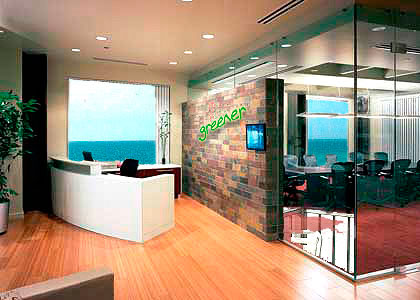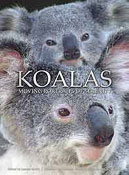Singing in the rain

Summer arrives with its busy season of new home construction and Greener Magazine presents the first in a summer long series of reports on green building practices and products for your new or seasoned home project. First we examine an alternative flooring material from an unusual source, the ancient bamboo forests of Hunan Province in China.
China has been using bamboo for centuries for everything from building materials to utensils but the sturdy plant has only recently found its way to the United States as a building product. Usually thought of as a decorative plant species for garden and interior scapes, bamboo has had limited value for builders; used primarily for fencing and surface materials like wall covering or cabinetry detail. That changed in the mid 90s when importers started to supply a unique bamboo substitute for traditional American hardwood floors.
Last summer Greener Magazine installed this new product from Teragren in our offices overlooking the Gulf of Mexico. We had just relocated to our new site and the floors were much in need of resurfacing. The original carpeting was beyond salvation. We wanted something that was upgrade and resilient to heavy traffic, our staff includes among others, 5 dogs, the occasional wet bathing suit mob and a crew of hungry, camera wielding paparazzi. We decided to try bamboo because of its claim of superior hardness, exceptional good looks, low maintenance and a stellar “Green” rating. What we had not counted on was the 2004 hurricane season and one terrifying afternoon when the storm came calling.
Bamboo flooring is made from mature 3 year old bamboo stalks which are harvested as a pruning function that allows new shoots to emerge and continue the growth cycle. Bamboo is not a wood at all, but rather a grass that grows to maturity in 3 years requiring virtually no fertilization or pesticide. Although bamboo grows in water it uses almost none and returns what it does use cleaner than when found; it is one of nature’s original water filters. Strong, dimensionally stable and naturally termite and bug resistant bamboo is most importantly infinitely renewable. Bamboo replaces the need to harvest old hardwood forests that can take 40 years or more to mature and makes possible the preservation of natural habitat thus protecting the environment.
The floors were installed just as any hardwood flooring the process requiring a good deal of correct measuring, cutting and sweat equity but the results were spectacular. Every vistor to our office can not help but exclaim their wonderment at the beautiful new floors. For more information on the manufacture and installation of bamboo flooring see BuildingGreen.com. There have been concerns raised regarding the finish treatment of this product using a compound of formaldehyde and the resultant out gassing that is inevitable after installation however new technology has nearly eliminated the problem. Today’s bamboo flooring is formaldehyde free and the finish coat is accomplished by a process called annealing which uses high pressure and a natural resin polymer top coat to fix the hard, gloss finish.
A final chapter to our home office product test was provided unexpectedly with a visit from one of 2004’s 4 hurricanes. During one frightening afternoon as clouds gathered ominously from the east we sat watching the track of Jeanne as she made her dash across Florida - straight at us.
As winds increased steadily from the north Jeanne turned slightly and the eye wall passed about 28 miles north of us and out over the Gulf – it rained for hours. Water drove horizontally at our buildings window wall slowly penetrating the sill framing and accumulating a thin layer of water across the entire floor as the wind topped 85 mph. The new bamboo floors were soaked. We mopped up the water and waited for the inevitable warp and ruin of the new floor.
The following morning the sun broke bright and clear revealing dry, straight, perfect bamboo floors; the water had dried away to nothing and we remembered the most important feature of bamboo, bamboo loves water and we love bamboo.





12:33 PM









<< Home